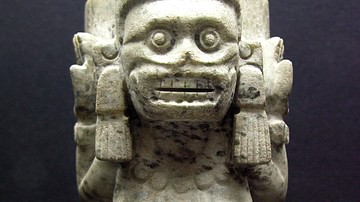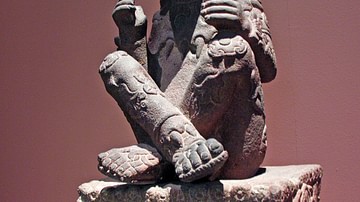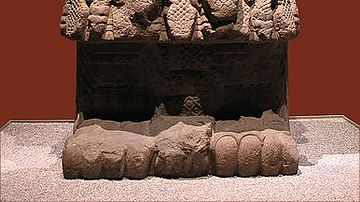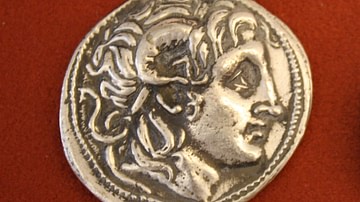Search
Search Results

Definition
Huitzilopochtli
Huitzilopochtli (pron. Huit-zi-lo-pocht-li) or 'Hummingbird of the South' or 'Blue Hummingbird on the Left' was one of the most important deities in the Aztec pantheon and for the Méxica he was the supreme god. He was the god of the sun and...

Definition
Tezcatlipoca - The Greatest of Aztec Gods
Tezcatlipoca (pron. Tez-ca-tli-po-ca) or 'Smoking Mirror' in Nahuatl was one of the most important gods in Postclassical Mesoamerican culture and particularly important for the Toltecs and the Aztecs, especially at Texcoco. He was an invisible...

Definition
Mictlantecuhtli
Mictlantecuhtli (pron. Mict-lan-te-cuht-li) or 'Lord of the Land of the Dead' was the Aztec god of death. He ruled the underworld (Mictlán) with his wife Mictecacíhuatl. Mictlantecuhtli was worshipped and feared across Mesoamerica. The god...

Definition
Xochipilli
Xochipilli or the 'Prince of Flowers' was the Mesoamerican god of summer, flowers, pleasure, love, dancing, painting, feasting, creativity and souls. He is a benevolent manifestation of Piltzintecuhtli, the young sun god who was himself a...

Definition
Coatlicue
Coatlicue (pron. Co-at-li-cu-e) or 'Serpent Skirt' was a major deity in the Aztec pantheon and regarded as the earth-mother goddess. Coatlicue is represented as an old woman to symbolise the antiquity of earth worship. Coatlicue was the patron...

Article
Alexander the Great as a God
The age-old concept of the “divine right of kings” allowed that a country's ruler received his or her power or authority from God. However, few, if any, were delusional enough to actually believe themselves to be a god. An exception to this...

Definition
Mahabharata
The Mahabharata is an ancient Indian epic where the main story revolves around two branches of a family - the Pandavas and Kauravas - who, in the Kurukshetra War, battle for the throne of Hastinapura. Interwoven into this narrative are several...

Definition
Aztec Warfare
The Aztecs engaged in warfare (yaoyotl) to acquire territory, resources, quash rebellions, and to collect sacrificial victims to honour their gods. Warfare was a fundamental part of Aztec culture with all males expected to actively participate...

Article
Aztec Pantheon
The gods of the Aztecs (1345-1521 CE) were many and varied and, as with many other ancient cultures, deities were closely associated with things and events important to the culture and the general welfare of the community. These include gods...

Definition
Diocletian
Diocletian was Roman emperor from 284 to 305 CE. After the defeat and death of the Roman emperor Philip the Arab in 249 CE, the empire endured over three decades of ineffective rulers. The glory days of Augustus, Vespasian, and Trajan were...